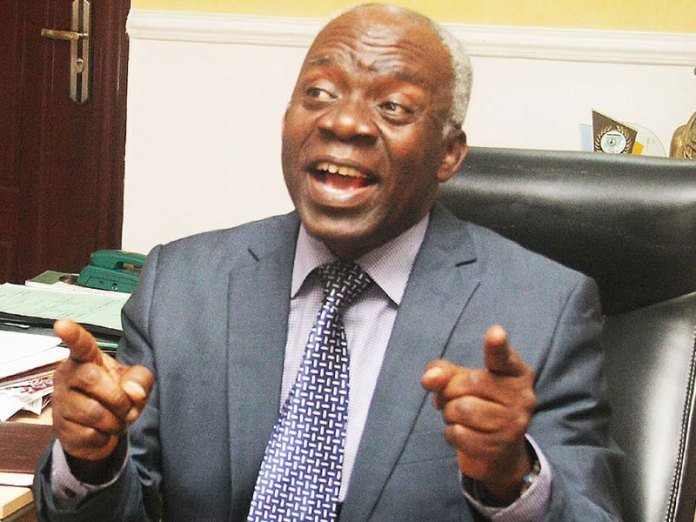Human Rights lawyers, Mr. Femi Falana (SAN), has decried what he described as the dangerously shrinking civil space in Nigeria, as well as rising insecurity and poverty in the land, noting that the country is in perilous times.

Speaking at the 13th Wole Soyinka Centre Media Lecture held in Lagos on Tuesday to mark the 87th birthday anniversary of Nobel Laureate, Professor Wole Soyinka, Falana who was chairperson of the occasion, regretted that while the country is drifting off course, the government of President Muhammadu Buhari is busy chasing shadows.
Falana wondered why, for example, the Buhari government is still looking for cattle routes in the 21st century where there are already organic beef
“How can you be looking for grazing routes in the 21st century, where you have organic beef? It is animal husbandry,” he said. “Look at Botswana, a small country of barely two million people, but the cattle population there is 2.5 million. That country has market and everything for animal husbandry, so it’s not rocket science to produce beef and distribute.”
The rights activist noted that while the country is facing serious security and economic problems, and amid calls for electoral reforms, Buhari is appointing Lauretta Onochie as INEC commissioner.
“For me we are in very perilous times,” he said. “But we are still talking about Onochie, how to make her INEC commissioner.”
Falana said it was time serious minded people joined politics, as according to him, the politics of NGOs can no longer help the country when criminal minded people are running the parliament.
He pointed out that today’s world has moved beyond oil to knowledge economy, and that Nigeria cannot afford to continue with people who are fixated on oil.
“Nobody has time for oil again. It is knowledge economy. We have a situation today where countries that has no natural resources are ahead of the rest, while those of us that are rich in resources are poor.
“Our economy is all about people going to Abuja to share poverty. The money we make from oil, what is it? We make about $30 billion per year. In fact, we made $15 billion last year from oil. The budget of Nigeria last year was $30 billion, the budget of Brazil was $650 billion. Brazil has 214 million people, Nigeria 206 million people.”
Falana encouraged young Nigerians to continue to demand change through peaceful agitation, noting that nobody can stop Nigerians from protesting because it is their right.
Recalling how he went to court in 2003 to defend President Buhari’s right to protest, he noted that it is very painful to see that it’s now under the government of Buhari that people are being manhandled and detained for protesting.
“Nobody can say that we cannot demonstrate. Under the military; under the most repressive military regimes that we have had in the country we were demonstrating,” he said. “In 2003 – and this is painful -the Olusegun Obasanjo administration invaded a rally in Kano attended by General Buhari and the late Chuba Okadigbo. They sprayed tear gas, Okadigbo was asthmatic, and two days after that event, he died because he inhaled poisonous gas. After that horrible experience, they came to me -I’m talking about General Buhari – to beg me to go to court for them and that they didn’t have money.
“The police had said they don’t have permit to hold the rally; That how can you have a rally when you don’t have a permit? I went to court for them, and in November 2006 the judgement came. The court declared that police permit for rally in Nigeria is illegal and unconstitutional. The police went to the court of appeal, and the court of appeal in 2008 said that police permit is a relic of colonialism and that a free people do not need permit to enjoy their freedom.”
“We mobilized the national assembly – a more serious national assembly than what we have now – and they made a law in 2016, that if you are going to have a rally in Nigeria, all you need to do is to inform the police, that the police should provide adequate adequate security.
“Section 83 subsection 4 of the police act of 2020 repeated that by saying that during protest, the police have a duty to protect you so that the hoodlums created by the government will not disturb your rally. Yes it is the government who create the hoodlums who disrupt rallies. The young men who have nothing doing, in peacetime they call them area boys. During elections they call them thugs. But when they are mobilized to disrupt protest they call them hoodlums.”
Falana encouraged Nigerian women to play more active part in politics, noting that the Nigeria’s colonial history, recorded stories of women like Funmilayo Ransom-Kuti, who played key roles in the fight against colonial rule.
Source: Reporter Online


